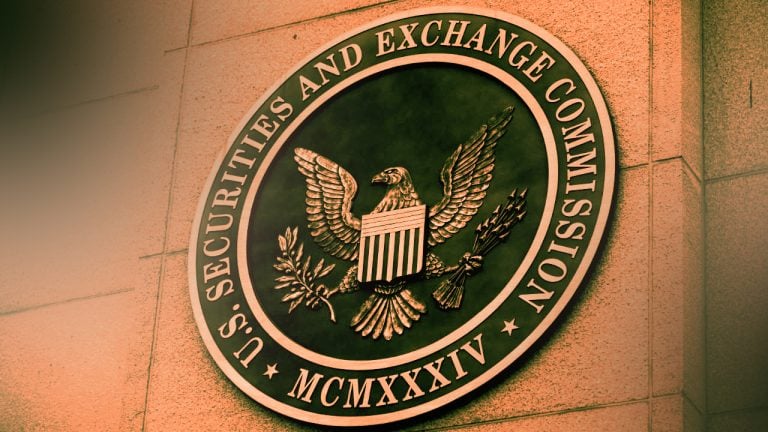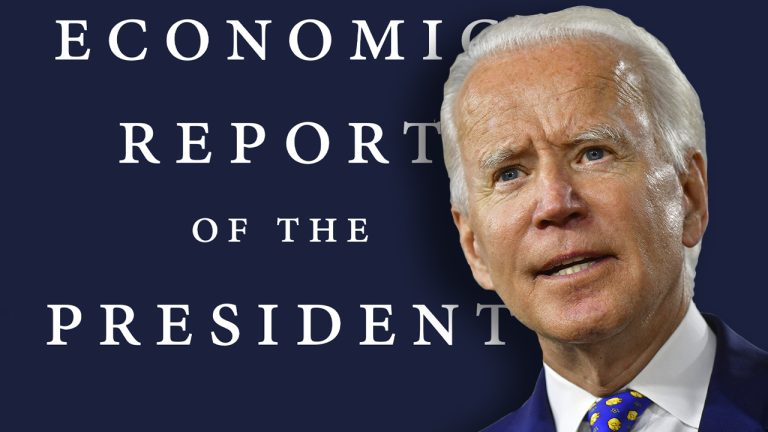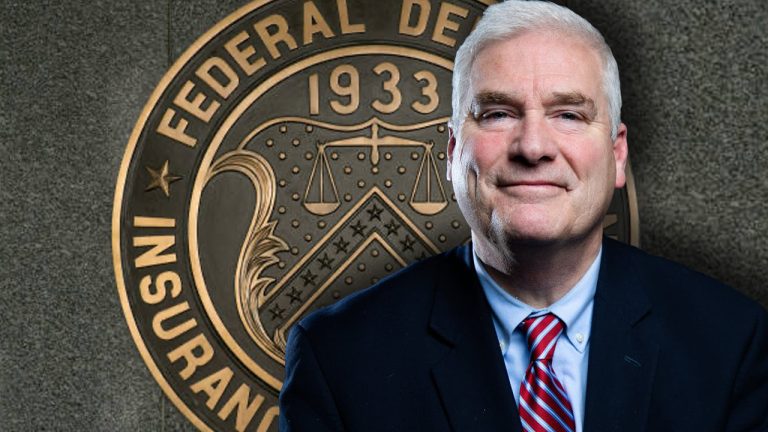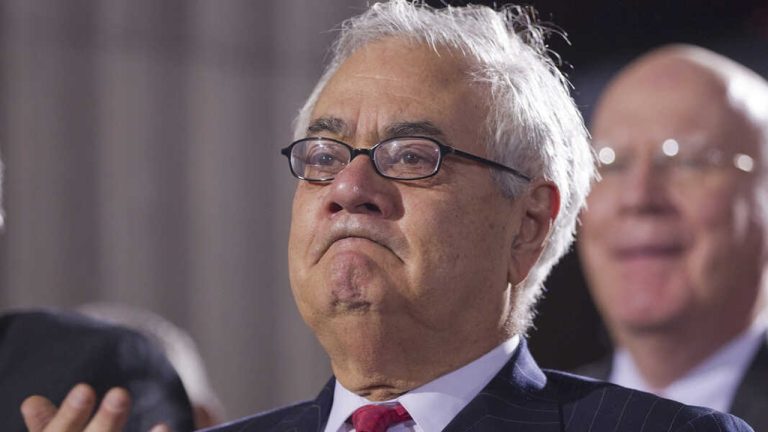
By engaging with stakeholders and focusing on compliance, Johnny Ng aims to position Hong Kong as a leader in adopting Bitcoin and Web3 technologies.
Hong Kong Legislative Council Member Johnny Ng has announced plans to collaborate with various stakeholders to assess the feasibility and potential benefits of incorporating Bitcoin into the special administrative region’s financial reserves.
In a recent post on X, Ng emphasized the increasing global recognition of Bitcoin (BTC), often dubbed “digital gold” due to its perceived value and potential as a hedge against inflation.
He highlighted the importance of considering Bitcoin in strategic fiscal reserves, suggesting that its inclusion could benefit Hong Kong’s economic framework under the right regulatory conditions.

As the unlocking process progresses, Coinbase Custody will play a crucial role in managing the vesting of these tokens.
In a significant move to comply with regulatory and tax requirements, Arkham has withdrawn 304.5 million ARKMs, valued at approximately $487.24 million, from its vesting contract and transferred them to Coinbase Prime custody.
According to the data on its platform, this transaction includes 115.8 million ARKM tokens, worth $185.28 million, owned by Arkham CEO Miguel Morel.
Arkham previously communicated via the X social platform on July 17 and clarified that the team’s tokens must be transferred to Coinbase Prime to ensure proper tax payments and regulatory compliance from July 18 onward.
 The U.S. Securities and Exchange Commission (SEC) has urged a federal court to deny Coinbase’s interlocutory appeal, following a recent court decision that allowed a lawsuit involving the SEC and the cryptocurrency platform to proceed. Last month, Coinbase sought appellate review after failing to get the case dismissed, marking a significant development in the ongoing […]
The U.S. Securities and Exchange Commission (SEC) has urged a federal court to deny Coinbase’s interlocutory appeal, following a recent court decision that allowed a lawsuit involving the SEC and the cryptocurrency platform to proceed. Last month, Coinbase sought appellate review after failing to get the case dismissed, marking a significant development in the ongoing […]
Speaking in a Twitter Space hosted by Coinbase on June 7, Ryan Selkis praised the new crypto bill for providing new firms with a clear path to compliance.
Messari CEO Ryan Selkis has praised a newly proposed Republican crypto bill, commenting it is a “10x improvement” on all other crypto bills introduced to the United States Congress so far.
The “Digital Asset Market Structure” (DAMS) bill, introduced on June 1, proposes to establish a framework to fill the gaps in the regulatory process between the U.S. Commodity Futures Trading Commission and Securities Exchange Commission on activities related to crypto-assets.
Speaking at a Coinbase-hosted event on Twitter Spaces on June 7, Selkis explained that U.S. Representatives Patrick McHenry and Glenn Thompson have drafted a pathway for tokens to reach compliance through decentralization without instantly triggering securities laws.
— Coinbase ️ (@coinbase) June 7, 2023
“How could tokens in their earliest stage come into compliance with securities laws on a temporary basis unless and until they were sufficiently decentralized?” Selkis asked rhetorically.
He went on to acknowledge the former work of U.S. Securities Exchange Commission Chair Hester Pierce, who released a “Safe Harbor” proposal in February 2020.
“A lot of the language that she had included in those proposals is now being worked out in legislative text [and] that's kind of made its way into this new bill.” He added:
“I do think that this is probably a 10x improvement versus anything that we've seen so far.”
The last similar crypto bill to hit the floor of Congress was the Digital Commodities Consumer Protection Act, which was introduced on August 3 to provide further supervision over the crypto industry following the collapse of FTX.
The Messari CEO’s comments were backed by TuongVy Le, head of regulatory and policy at Bain Capital Crypto, who added that DAMS finally gives token issuers “a path to compliance.”
“The issue that a lot of crypto issuers or token projects face is when you're launching a token, you don't become decentralized right away, right?” said Le.
Great to be on today with @iampaulgrewal @JBSDC @twobitidiot! @coinbase thanks for having me. There’s a lot going on right now, but we are fighting for progress and innovation and something better than the status quo. And we will get there! - onward! https://t.co/oHGhh6wssP
— TuongVy Le ️ (@TuongvyLe12) June 7, 2023
She explained that token issuers “need time to work towards that,” but while that’s in the works, the SEC can swoop in and “bring enforcement action against you.”
While Le considered this to have always been the “fundamental problem,” she remains hopeful that DAMS can resolve it once and for all:
“I think this bill addresses that. It gives token issuers a path to get there [...] in a really thoughtful way.”
Paul Grewal, the chief legal officer at Coinbase, also acknowledged the problems that many token issuers are tackling:
“Under the current law there really is no reasonable pathway for those assets that start out life as a security to evolve and involve in large part by decentralizing in a way that's recognized under the law.”
While there are many details to be ironed out, the Digital Asset Market Structure Discussion Draft is a strong step towards developing a regulatory regime that embraces innovation, maintains US industry presence and protects consumers.
— paulgrewal.eth (@iampaulgrewal) June 5, 2023
Related: Crypto lawyers flame Gensler over claims that all crypto are securities
The bill was discussed in light of the SEC’s recent lawsuits filed against the two largest cryptocurrency exchanges — Binance on June 5 and Coinbase on June 6 — for allegedly breaking securities laws by offering tokens as unregistered securities.
The SEC now considers at least 67 cryptocurrencies to be classed as securities.
Among the most notable tokens the financial regulator deems to be securities are Binance Coin (BNB), Solana (SOL), Cardano (ADA), Polygon (MATIC) and Cosmos (ATOM).
Magazine: Crypto regulation: Does SEC Chair Gary Gensler have the final say?

Coinbase CEO Brian Armstrong called the quarter a "turning point" for the company as it worked towards a more "financially disciplined" firm.
Crypto exchange Coinbase managed to significantly narrow its net loss in the first quarter of 2023, due in part to robust earnings from retail investor trading activity.
The company’s net loss fell from $557 million in Q4 2022 to $79 million in Q1, partly attributed to a 22% increase in revenue to $736 million.
The results beat expectations from some analysts, leading to a 7% spike in Coinbase’s (COIN) share price in after hours trading.

Transaction revenue — derived from fees its charges for trades — from its institutional base increased a whopping 66% to over $22.3 million, while transaction revenue from retail investors increased14.1% to $352.1 million, according to Coinbase’s May 4 shareholder letter.
Overall, revenue from transactions increased 16% quarter-on-quarter to $375 million, though trading volumes remained fairly flat.
Interest income and blockchain rewards from staking brought in the most revenue for the quarter, which increased to $240.8 million and $73.7 million respectively from Q4 2022.
The percentage of revenue from Bitcoin (BTC) (36%) and Ether (ETH) (18%) trades remained almost identical over the quarter.
The firm is inching closer to profitability following a tumultuous 2022 which saw overall net losses of $1.16 billion, $803 million, $576 million and $605 million across each respective quarter last year.
Coinbase explained that the quarter represented a “turning point” towards building a more “efficient” and “financially disciplined” firm:
“We reduced costs, doubled down on operational excellence and risk management, and continue to drive product innovation and regulatory clarity. Our efforts are showing meaningful progress.”
“Our teams are smaller, but more nimble than ever and we are pleased with the pace of innovation and the results we are seeing,” the firm added.
Coinbase cut staff by 18% in June, 2022 and then another 20% in January, 2023 in order to ensure the firm maintains an appropriate level of “operational efficiency,” Armstrong explained.
Related: Coinbase International Exchange launches amid SEC crypto crackdown in the US
Coinbase’s comments were made in light of the Wells Notice hanging over their heads from the United States Securities Exchange Commission (SEC):
"We see this as an opportunity to continue pushing for a clear rule book in the US for crypto regulations."
The firm said it is "heartened" to see more bi-partisan support for incoming crypto legislation and hopes to play a role in advocating for a rules-based industry.
Magazine: Crypto regulation — Does SEC Chair Gary Gensler have the final say?
 After the report revealing that the cryptocurrency exchange Bittrex had received a Wells Notice from the U.S. Securities and Exchange Commission (SEC), the securities regulator charged Bittrex and the company’s CEO on April 17 for “operating an unregistered exchange, broker, and clearing agency.” Following the Wells Notice, SEC Charges Bittrex for Violating Federal Laws On […]
After the report revealing that the cryptocurrency exchange Bittrex had received a Wells Notice from the U.S. Securities and Exchange Commission (SEC), the securities regulator charged Bittrex and the company’s CEO on April 17 for “operating an unregistered exchange, broker, and clearing agency.” Following the Wells Notice, SEC Charges Bittrex for Violating Federal Laws On […]
Explore essential skills for top legal and compliance jobs in the crypto market.
Cryptocurrencies are a rapidly growing market that is changing how people invest, buy and sell goods and services, and transfer money. However, with the growth of this market comes an increasing need for legal and regulatory compliance, particularly concerning issues such as money laundering, fraud and data protection.
As a result, there is a demand in the cryptocurrency sector for legal and compliance specialists. The positions listed below are just a few examples of the various legal and compliance positions available in the cryptocurrency sector. Each one is crucial to ensuring that the market functions fairly, openly and lawfully.
A compliance officer in the crypto market is responsible for ensuring that the company complies with all relevant laws and regulations, including Anti-Money Laundering (AML) and Know Your Customer (KYC) requirements.
Knowing the relevant laws and regulations, having strong analytical and problem-solving abilities, and having the capacity to effectively interact with internal and external stakeholders are all necessary qualifications for this position.
A legal counsel in the crypto market provides legal advice and support to the company on a range of legal issues, including regulatory compliance, contracts, intellectual property, and data protection.
Legal counsels in the crypto world require unique skills due to the complex and evolving nature of the cryptocurrency market. This also entails technological and legal skills. Legal counsels need to know the rules and legislation that apply to cryptocurrencies and other digital assets, as well as the underlying technologies like blockchain and smart contracts. Additionally, they must be able to handle the dynamic regulatory environment of the cryptocurrency business.
They must also have exceptional analytical and problem-solving abilities to decipher complicated legal and technical data, giving clients clear and succinct advice. Additionally, legal counsels must have strong communication and negotiation skills to represent clients effectively in legal proceedings or negotiations.
A compliance analyst in the crypto market is responsible for monitoring the company’s compliance with regulatory requirements, conducting risk assessments, and developing and implementing compliance policies and procedures.
Skills required for this role include strong analytical and problem-solving skills, knowledge of relevant laws and regulations, and the ability to work independently and as part of a team.
A KYC/AML analyst checks consumers to ensure they adhere to AML and KYC standards in the crypto market. KYC/AML analysts in the crypto market require attention to detail, knowledge of regulations, risk assessment, investigative skills, data analysis, and communication skills to ensure compliance with Anti-Money Laundering and Know Your Customer requirements.

Related: What is KYC, and why do crypto exchanges require it?
A regulatory affairs manager in the crypto market is responsible for monitoring regulatory developments, analyzing the impact on the company and developing strategies to ensure compliance.
Regulatory affairs managers in the crypto industry require skills such as adeptness with compliance frameworks, knowledge of regulatory policies, proficiency in navigating legal requirements and the ability to develop strategic solutions to meet regulatory obligations.
The chief compliance officer in the crypto market is responsible for overseeing the company’s compliance function, ensuring that the company complies with all relevant laws and regulations, and developing and implementing compliance policies and procedures.
Related: How are metaverse assets taxed?
Chief compliance officers in the crypto market require skills such as leadership, stakeholder management, strategic planning, risk assessment, and adeptness with compliance frameworks and regulatory policies to ensure effective compliance management and risk mitigation.
A data protection officer in the crypto market is responsible for ensuring that the company complies with data protection laws and regulations, such as the General Data Protection Regulation (GDPR).
Learning about General Data Protection Regulation.
— Cherry (@ImaNjokko) March 25, 2023
The GDPR was developed on 7 principles:
1) lawfulness, fairness and transparency
2) purpose limitation
3) data minimization
4) accuracy
5) storage limitation
6) integrity and confidentiality
7) accountability.
Data protection officers in the crypto industry require advanced knowledge of privacy regulations, expertise in data governance, proficiency in implementing security protocols, and the ability to ensure data confidentiality, integrity and availability.
 On Monday, U.S. president Joe Biden published the administration’s economic report and addressed the subject of cryptocurrencies. The section titled “The Perceived Appeal of Crypto Assets” describes the currencies as “mostly speculative investment vehicles” that are “unbacked” and “traded without fundamental anchors.” The White House insists that crypto assets do not deliver on their promises […]
On Monday, U.S. president Joe Biden published the administration’s economic report and addressed the subject of cryptocurrencies. The section titled “The Perceived Appeal of Crypto Assets” describes the currencies as “mostly speculative investment vehicles” that are “unbacked” and “traded without fundamental anchors.” The White House insists that crypto assets do not deliver on their promises […] On Wednesday, Tom Emmer, the U.S. Republican congressman from Minnesota, revealed he sent a letter to Martin Gruenberg, the chairman of the Federal Deposit Insurance Corporation (FDIC), regarding reports that the FDIC is “weaponizing recent instability” in the U.S. banking industry to “purge legal crypto activity” from the United States. Specifically, Emmer asked Gruenberg if […]
On Wednesday, Tom Emmer, the U.S. Republican congressman from Minnesota, revealed he sent a letter to Martin Gruenberg, the chairman of the Federal Deposit Insurance Corporation (FDIC), regarding reports that the FDIC is “weaponizing recent instability” in the U.S. banking industry to “purge legal crypto activity” from the United States. Specifically, Emmer asked Gruenberg if […] Barney Frank, a former member of the U.S. House of Representatives from Massachusetts and leading co-sponsor of the 2010 Dodd-Frank Act, discussed his opinion on the recent failure of Signature Bank. In an interview, Frank stated that he believes regulators aimed to “send a very strong anti-crypto message.” Frank, who also serves as a Signature […]
Barney Frank, a former member of the U.S. House of Representatives from Massachusetts and leading co-sponsor of the 2010 Dodd-Frank Act, discussed his opinion on the recent failure of Signature Bank. In an interview, Frank stated that he believes regulators aimed to “send a very strong anti-crypto message.” Frank, who also serves as a Signature […]